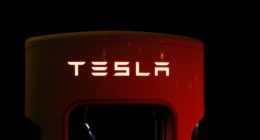Artificial Intelligence(AI) will be as ubiquituous as smartphones in the next ten years. And if that’s the case then the American chipmaker Intel also wants in on the action. Not only that, the company wants to propel the change by integrating AI into their own devices, products and other technologies ranging from drones to autonomous cars.
At an AI-focused Intel event in San Francisco, CEO Brian Krzanich took center stage to detail the upcoming company transformations that will see Intel use it know-how, assets and financial status to drive the computing revolution using artificial intelligence. Though its previous ‘Intel Inside’ campaign didn’t gain much traction among masses, the company is now looking to place itself as a key player in the AI world.
Intel is uniquely capable of enabling and accelerating the promise of AI. Intel is committed to AI and is making major investments in technology and developer resources to advance AI for business and society,
stated Krzanich.
Starting off strong, Intel touched on the basics of artificial intelligence technology and mentioning the fact that GPUs would not be the only drivers of complex machine learning algorithms. On this note, the company took the wraps off its most comprehensive AI portfolio called Intel Nervana platform. Built using the robust machine technologies acquired from Nervana Systems, this platform will act as a foundation of flexible and highly-optimized AI solutions. This is powered by the Xeon and Xeon Phi processors.
The company also mentions that it will integrate Nervana’s technology into its chip roadmap and release its first-ever Nervana Engine chip, codenamed Lake Crest in the first half of 2017. This chip will be designed for deep learning using neural networks, an AI tech inspired by the structure of the human brain. These new chips will deliver the highest performance for deep learning and perform exceptionally well during the intense and time-consuming initial AI “training” process.
Commenting on the same, Diane Bryant, executive VP and GM of the Data Center Group at Intel, says,
We expect the Intel Nervana platform to produce breakthrough performance and dramatic reductions in the time to train complex neural networks. Before the end of the decade, Intel will deliver a 100-fold increase in performance that will turbocharge the pace of innovation in the emerging deep learning space.
The company is also looking to tightly integrate the AI technology from Nervana into its best-in-class Intel Xeon processors and deliver a completely new high-class product codenamed ‘Knights Crest’ in the coming months. Bryant also added that new Xeon Phi processors, codenamed Knights Mill, will deliver upto 4x better performance for deep learning utilities and made available in 2017. These might be able to handle some minimal neural network training.
In addition to bringing extensive machine learning capabilities to its chips, Intel is planning to leverage the same for business analytics. Intel Saffron Technology, as it is called, leverages memory-based reasoning techniques and transparent analysis of heterogeneous data to provide intelligent local analytical results for IoT and smart home devices. The company is also extending support for its intelligent APIs across other embedded technologies such as Intel RealSense cameras and recently acquired Movidius vision processing units.
To further expand the scope of its AI technology and make its tools easily accessible, Intel is working hard to forge partnerships outside the company. The company has already caliberated Google’s TensorFlow, the Apache Foundation’s Spark and Facebook’s Torch to run better on its processors. It has also released a Intel Nervana Graph Compiler to accelerate deep learning frameworks, which have already started bearing fruit by speeding up numeruous projects.
The company is currently also working with Coursera to make a series of AI courses available to those willing to learn. It then also plans to check the resumes of the top 10 percent for an intership position at the company. It has also partnered with Mobile ODT to launch a Kaggle contest where the academic community can put their AI skills to the test to solve real-world socioeconomic problems.





